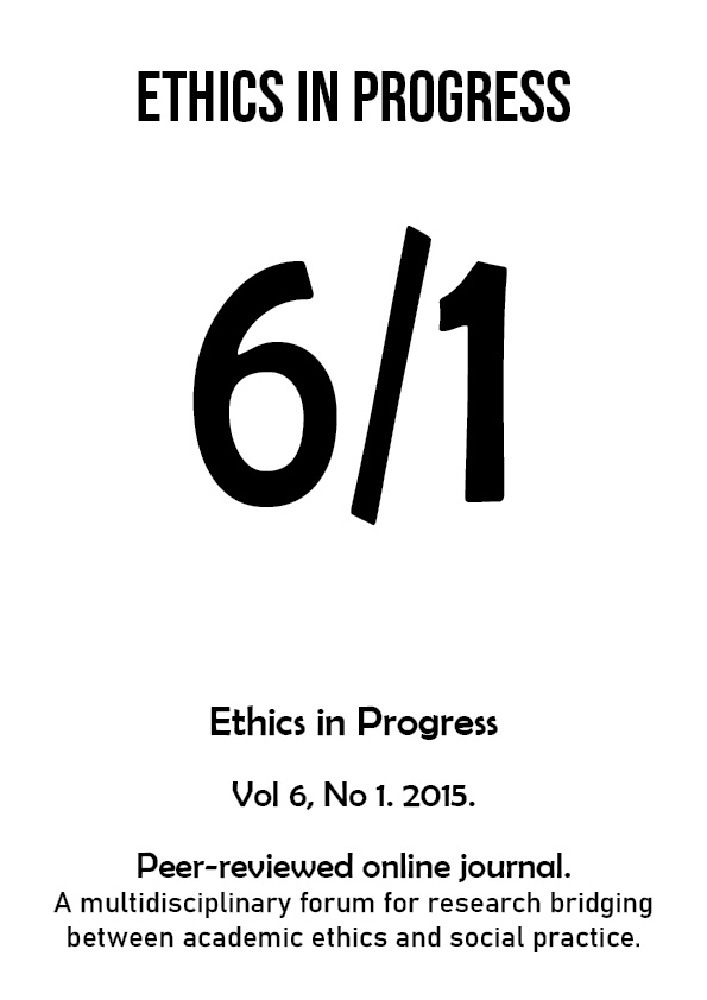Abstract
The paper addresses the problem of the philosophical sources of the debate over moral human enhancement held between transhumanists and bio-conservatives. The paper is aimed at showing that the opposing positions in the debate are grounded in different philosophical traditions, namely naturalistic (Darwinian) and rationalistic (Kantian), which define human nature differently. Morality and moral improvement are also differently understood in these different traditions, thus the assumptions rooted in them lead to different conclusions concerning the idea of human moral enhancement and its justification.
References
Agar, N. 2008. Liberal Eugenics: In Defence of Human Enhancement. Malden, MA: Blackwell.
Arendt, H. 2000. Kondycja ludzka. Tłum. A. Łagodzka. Warszawa: Aletheia.
Arendt, H. 2003. O rewolucji. Tłum. M. Godyń. Warszawa: Czytelnik.
Augustyn, św. 1994. Wyznania. Tłum. Z. Kubiak. Kraków: Znak.
Augustyn, św. 2002. Państwo Boże. Tłum. ks. W. Kubicki. Kęty: Wydawnictwo Antyk.
Bashford, A. 2013. “Julian Huxley’s transhumanism”. W M. Turda (ed.), Crafting Humans. From Genesis to Eugenics and Beyond. Göttingen: Vandenhoeck & Ruprecht: 153-167.
Birnbacher, D. 2008. “Posthumanity, Transhumanism and Human Nature”. W: G. Gordijn & R. Chadwick (eds), Medical Enhancement And Posthumanity. Berlin: Springer: 95-106.
Bostrom, N. 2008. “Why I Want To Be a Posthuman When I Grow Up”. W G. Gordijn & R. Chadwick (eds.), Medical Enhancement and Posthumanity. Berlin: Springer. 107–137.
Burckhardt, J. 1991. Kultura Odrodzenia we Włoszech. Tłum. M. Kreczkowska.Warszawa: PIW.
Collins, F. C. 2006. The Language of God. A Scientist Presents Evidence for Belief. New York: Free Press.
Douglas, T. 2008. “Moral Enhancement”. Journal of Applied Philosophy 25(3): 228–245.
Drwięga, M. 2008. „W poszukiwaniu doskonałości. Natura ludzka i etyka w dobie inżynierii genetycznej”. Diametros 16: 80-91.
Frankfurt, H.G. 1997. „Wolność woli i pojęcie osoby”. W J. Hołówka (red.naukowa), Filozofia moralności. Postanowienie i odpowiedzialność moralna. Tłum. J. Nowotniak. Warszawa: Aletheia: 21-39.
Fukuyama, F. 2014. Koniec człowieka. Konsekwencje rewolucji biotechnologicznej. Tłum. B. Pietrzyk. Kraków: Znak.
Habermas, J. 2003. Przyszłość natury ludzkiej. Tłum. M. Łukasiewicz. Warszawa: Wydawnictwo Naukowe SCHOLAR.
Hamann, K., Warneken, F., Greenberg, J., & Tomasello, M. 2011. “Collaboration Encourages Equal Sharing in Children But Not Chimpanzees.” Nature 476: 328-331.
Harris, J. 2007. Enhancing Evolution. The Ethical Case for Making Better People. Princeton: Princeton University Press.
Harris, J. 2011. “Moral Enhancement and Freedom.” Bioethics 25(2): 102–111.
Huxley, A. 2013. Nowy, wspaniały świat. Tłum. B. Baran. Warszawa: Muza.
Huxley, J. 1968. “Transhumanism”. Journal of Humanistic Psychology 8(1): 73-76.
Kamm, F. 2013. “What As And What Is Not Wrong with Enhancement. Evaluating Sandel’s View.” W idem, Bioethical Prescriptions: To Create, End, Choose, and Improve Lives. Oxford: Oxford University Press.
Kant, I. 1981. Uzasadnienie metafizyki moralności. Tłum. M Wartenberg. Warszawa: PIW.
Kant, I. 2001. Krytyka czystego rozumu. Tłum. R. Ingarden. Kęty: Wydawnictwo Antyk.
Kass, L. R. 1997. “The Wisdom of Repugnance.” The New Republic 2(6): 17-26.
Kidd, C., Palmeri, H., & Aslin, R. N. 2012. “Rational Snacking: Young Children’s Decision-Making on the Marshmallow Task Is Moderated by Beliefs About Environmental Reliability.” Cognition 126(2013): 109-114.
Kołakowski, L. 2014. Niepewność epoki demokracji. Kraków: Znak.
Korsgaard, Ch. M. 1989. “Personal Identity and the Unity of Agency: A Kantian Response to Parfit.” Philosophy & Public Affairs 18(2): 101-132.
Levitt, S. D. & Dubner, J. 2011. Freakonomia. Świat od podszewki. Tłum. A. Sobolewska. Kraków: Znak.
Lewis, C.S. 2013. Koniec człowieczeństwa. Tłum. M. Sobolewska. Kraków: Esprit.
McDowell, J. 2002. „Two Sorts of Naturalism”. W: J. McDowell. Mind, Value, And Reality. Harvard University Press, Cambridge, Mass. – London: 167–197.
Milton, C. 1974. Raj utracony. Tłum. M. Słomczyński. Kraków: Wydawnictwo Literackie.
Mischel, W., Shoda, Y., Rodriguez, M.L. 1989. "Delay of Gratification in Children.” Science 244: 933-938.
Persson, I., Savulescu, J. 2008. “The Perils of Cognitive Enhancement and the Urgent Imperative to Enhance the Moral Character of Humanity”. Journal of Applied Philosophy 25(3): 166–167.
Persson, I., Savulescu, J. 2012a. Unfit for the Future: The Need for Moral Enhancement, Oxford: Oxford University Press.
Persson, I., Savulescu, J. 2012b. “Moral Enhancement, Freedom And God Machine.” The Monist 95(3): 399-421.
Piłat, R. 2013. „Refleksja i kompetencja moralna”. W idem, Powinność i samowiedza. Warszawa: Wydawnictwo UKSW: 169–188.
Pugh, J. 2014. “Autonomy, Natality And Freedom: A Liberal Re-Examination of Habermas in the Enhancement Debate.” Bioethics 29(3): 145-152.
Sandel, M. 2014. Przeciwko udoskonalaniu człowieka. Etyka w czasach inżynierii genetycznej. Tłum. O. Siara. Warszawa: Kurhaus Publishing.
Savulescu, J. 2001. “Procreative Beneficence: Why Should We Select the Best Children?.” Bioethics 15(5/6): 413-426.
Savulescu, J. & Kahane, G. 2009. “The Moral Obligation to Create Children with the Best Chance of the Best Life”. Bioethics 23(5): 274-290.
Savulescu, J., Sandberg A., & Kahane, G. 2011. „Well-Being and Enhancement”. W J. Savulescu, R. Meulen, & G. Kahane (eds.), Enhancing Human Capacities. New York: Wiley–Blackwell: 48-88.
Scheler, M. 1999. „Ordo amoris w znaczeniu opisowym i normatywnym”. Tłum. W. Czapliński. Kwartalnik Filozoficzny XXVI (4): 123-158.
Shoda, Y., Mischel, W., & Peake, P. K. 1990. „Predicting Adolescent Cognitive and Self-Regulatory Competencies from Preschool Delay of
Gratification: Identifying Diagnostic Conditions.” DevelopmentalPsychology 26(6): 987-986.
Singer, P. 2007. Etyka praktyczna. Tłum. A. Sagan. Warszawa: Książka i Wiedza.
Soniewicka, M. 2015. „Biologiczne podstawy moralności w kontekście genetycznego ulepszania człowieka”. W J. Stelmach, B. Brożek, & K. Eliasz (red. naukowa), Naturalizacja prawa: interpretacje. Warszawa: Wolters Kluwer: 279-298.
Spaemann, R. 2001. Osoby. Tłum. J. Merecki. Warszawa: Oficyna Naukowa.
Spaemann, R. 2006. Granice. O etycznym wymiarze działania. Tłum. J. Merecki. Warszawa: Oficyna Naukowa.
Stróżewski, W. 1999. „Aksjologiczna struktura człowieka”. Kwartalnik Filozoficzny XXVI (4): 21-46.
Walker, W. 2009. „Enhancing Genetic Virtue: A Project for Twenty-First Century Humanity?.” Politics and the Life Sciences 28(2): 27–47.
Warmbier, A. 2015. „Moral Perfection and the Demand for Human Enahncement”. Ethics in Progress 6 (1): 23-37.
Warneken, F., Lohse, K., Melis, A., & Tomasello, M. 2011. „Young Children Share the Spoils After Collaboration.” Psychological Science 22: 267-273.
Zizek, B., Garz, D., & Nowak, E. (eds.) 2015. Kohlberg Revisited. Rotterdam - Boston - Taipei: Sense Publishers.




